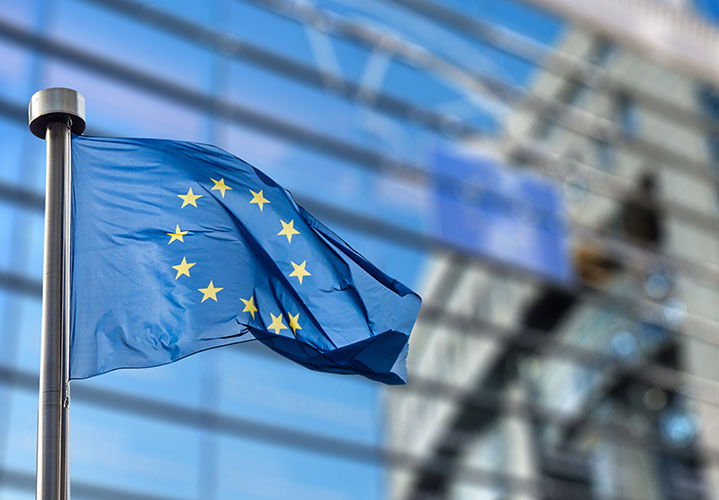Gradual divergence
For many years the EU has pursued a policy of harmonisation for trade mark, copyright and other intellectual property laws across Europe. From 1 January 2021, the UK split away from this regime, and we can expect to see a gradual divergence between EU27 and UK intellectual property laws in the future. For most businesses, this split should give no immediate cause for concern as the UK national intellectual property regime is and will remain one of the strongest and most developed in the world.
In the medium term
Businesses operating both in the UK and Europe – including in the online sphere – will see increasing divergence between the UK and EU27 copyright, trade mark and other intellectual property rules they need to comply with, potentially leading to increased legal and administrative costs. There are also likely to be increased enforcement and litigation costs involved in maintaining separate trade mark and design registrations in the UK, and the UK may be excluded from certain streamlining and cost-saving projects undertaken by the EU27, such as the proposed Unified Patents Court. On the plus side, however, UK policy makers will be able to ‘go their own way’ on issues they believe will benefit particular sectors, for example in relation to copyright exceptions, which are currently harmonised across the EU. We can expect to see the UK government consulting widely in relation to future policy. If you would like to receive information about developments going forward, please click here to subscribe to receive our IP eBulletin or Life Sciences eBulletin.
Things to check now – please click through for more information on the points that are relevant to you.
EU Trade Marks (EUTMs)
The EU trade mark is a single trade mark registration covering the whole of the EU. As of 1 January 2021 these no longer cover the UK, but if you own one you should already have received an equivalent UK national trade mark to compensate. Check here for further information and the steps you should take to preserve your position in the UK and EU27.
EU design rights
The EU registered design (formerly called the Community Design) is a single registered design covering the whole of the EU. As with EUTMs, if you own one you should already have received an equivalent UK national registered design.
Businesses that rely on unregistered design rights to protect their products – particularly relevant to fast-moving consumer goods and fashion - should urgently review their position in the light of changes to the unregistered designs regime resulting from Brexit. Check here for further information about design rights.
Copyright
Copyright is a UK national right which will not immediately be affected by Brexit. However, Brexit results in the loss of reciprocal rights in some areas including database rights, online and broadcasting and collective rights management. Check here for further information about copyright.
Patents
Patents are national rights and will not generally be directly affected by Brexit. The main exception to this is supplementary protection certificates in relation to authorised medicines where a new UK regime will involve some changes. Check here for further information.
Parallel trade
Parallel traders buy branded and other IP protected goods – e.g. medicines – in one EU country where they are cheaper and sell them into another, more expensive EU market. Under EU rules on free movement of goods brand owners and other IP right holders are usually not able to object to this. Post Brexit these rules no longer apply to goods sold from the UK into Europe with the result that brand and other IP owners in the EU27 may be able to object to parallel trade from the UK. By contrast the UK continues to allow parallel trade from the EU into the UK for the time being. The UK Government has said it will shortly issue a formal consultation about what approach the UK should take to this issue in the future, so this is a space to watch.
IP licences
Licensors and licensees should review existing licences to ensure that definitions still operate as intended. They may also wish to consider whether licensing arrangements which treat the EU/EEA as a single licensed territory remain appropriate.
Contact our experts for further advice
Do please contact IP partners Tom Lingard or Charlotte Tillett or your usual contact at Stevens & Bolton to discuss any aspect of Brexit and intellectual property law.
Tom Lingard, Intellectual Property Partner and Head of the intellectual property group
Charlotte Tillett, Intellectual Property Partner and Head of our multi-discipline life sciences group

 Tom Lingard
Tom Lingard  Charlotte Tillett
Charlotte Tillett